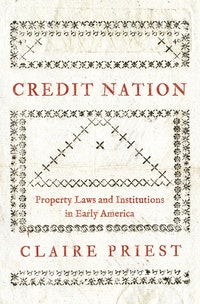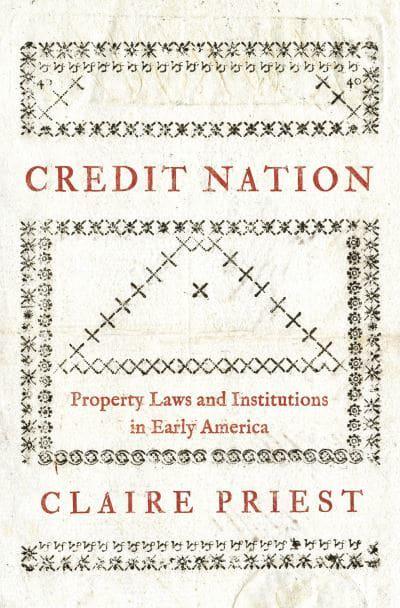Credit nation
property laws and legal institutions in early America
- ISBN: 9780691158761
- Editorial: Princeton University Press
- Fecha de la edición: 2021
- Lugar de la edición: Princeton. Estados Unidos de Norteamérica
- Encuadernación: Cartoné
- Medidas: 24 cm
- Nº Pág.: 226
- Idiomas: Inglés

Even before the United States became a country, laws prioritizing access to credit set colonial America apart from the rest of the world. Credit Nation examines how the drive to expand credit shaped property laws and legal institutions in the colonial and founding eras of the republic.
In this major new history of early America, Claire Priest describes how the British Parliament departed from the customary ways that English law protected land and inheritance, enacting laws for the colonies that privileged creditors by defining land and slaves as commodities available to satisfy debts. Colonial governments, in turn, created local legal institutions that enabled people to further leverage their assets to obtain credit. Priest shows how loans backed with slaves as property fueled slavery from the colonial era through the Civil War, and that increased access to credit was key to the explosive growth of capitalism in nineteenth-century America.
Credit Nation presents a new vision of American economic history, one where credit markets and liquidity were prioritized from the outset, where property rights and slaves became commodities for creditors’ claims, and where legal institutions played a critical role in the Stamp Act crisis and other political episodes of the founding period.
PART I. FOUNDATIONS OF PROPERTY AND CREDIT 19
1 Colonial Land Distribution and the Structure of British Colonial Commerce 21
2 The Backbone of Credit: The Institutional Foundations of Colonial America’s Economy of Credit and Collateral 38
PART II. PROPERTY EXEMPTIONS: COMMODIFYING LAND AND SLAVES IN COLONIAL AMERICA 57
3 English Property Law, the Claims of Creditors, and the Colonial Legal Transformation 59
4 Parliamentary Authority over Creditors’ Claims: The Debt Recovery Act 74
PART III. MANAGING RISK IN COLONIAL AMERICA 91
5 Managing Risk through Property: The Fee Tail 93
PART IV. THE STAMP ACT, INDEPENDENCE, AND THE FOUNDING 113
6 The Stamp Act and Legal and Economic Institutions 115
7 Property Exemptions and the Abolition of the Fee Tail in the Founding Era 128
8 Property and Credit in the Early Republic 146
9 Property, Institutions, and Economic Growth in Colonial America 153
10 Conclusion 166








